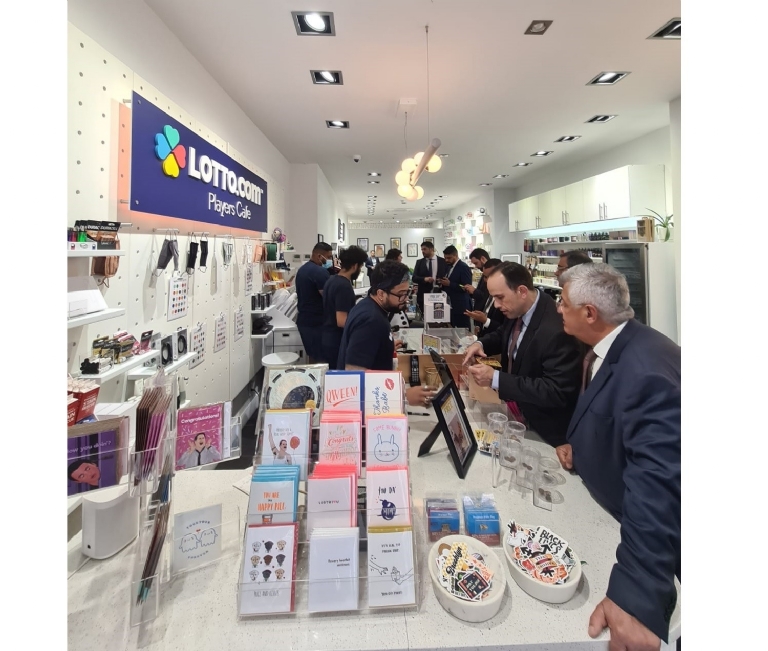

Executives from the private sector also participated, which play a key role in expanding lottery collection in a regulated market.
Bill 1796/23, proposed by Deputy Bacelar, aims to increase lottery collection by expanding points of sale in a model similar to that of the United States.
The purpose of the expedition was to present the scenario of Lotto.com, Sorte Online's “sister” company, which operates in a fully regulated manner. For three days, the delegation got to know how operations at physical and digital points work, in addition to having visited one of the largest lotteries in the country, in New Jersey, where they learned how a decentralized lottery works - a different model from the one applied in Brazil.
Finally, there was a meeting with Bill Pascrell, a member of the country's House of Representatives who was directly involved in the regulation in the US.

According to Márcio Malta, CEO of the brand, the mission was designed to show the different scenarios and benefits for both the entrepreneur, the government and the lottery. “Our goal is to discuss practice and theory. Therefore, we thought of a list of influential names for the future of the lottery scenario, which could analyze a 100% regulated market. The mission will contribute to the advancement of the theme of Brazil, since the whole experience has brought inspirations of what works and what still needs more strategic planning to work,” he explains.
The entourage consisted of:
Benefits of regulation
A survey by FGV Projetos, commissioned by the Association of Digital Intermediators of Lottery Games (AIDIGLOT), projects that Lottery collections would grow 140% in Brazil with the regulation of betting intermediation, enabling the generation of more jobs and contribution to the Domestic Product Gross (GDP).
Other important data indicate that Brazil lags far behind in tax collection and, consequently, in social transfers compared to the United States and Europe, where this proposed model has already been in practice for years.
Currently, the lottery market in the country is centralized, answering to a single company - Caixa Econômica Federal, which generates a scenario of monopoly of activities. The emergence of intermediaries comes precisely to expand the sector and ensure greater reach to the final public, decentralizing the direct sale of the lottery product, in a regulated manner, from just one company.
“If we compare the scenarios, we will see that Brazil has only 13,500 lottery storess, which are the official points of sale for lotteries. This total corresponds to the same amount for the state of Florida alone, which results in a significant disparity. The United States has one point of sale for every 1000 inhabitants, while Brazil has only 0.06 for the same population proportion,” explains the CEO of Sorte Online.
“In addition, in the offline environment, although Brazil stands out in terms of its digital presence, Caixa requires that sales be made exclusively through its official channel, the Loterias Caixa website and app, excluding other possibilities such as marketplaces, digital banks and loyalty programs, which together add up to more than 100 million customers,” concludes Marcio.
Bill 1796/23
If approved by the Finance and Taxation and Constitution and Justice and Citizenship committees, Bill 1796/23 will allow the betting advisor to offer consulting, planning, intermediation and betting services in lotteries, by physical means or electronically, on behalf of the bettors, but without replacing the legally authorized sales channels. The text will still be analyzed, however the perspectives are positive.
Source: GMB